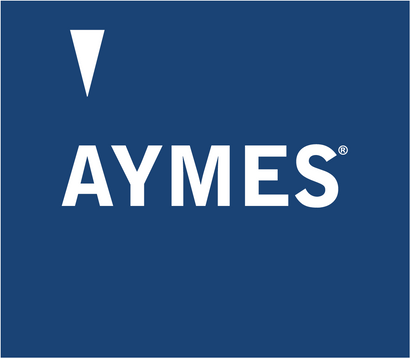At AYMES, we’re here to support you. Paediatric nutrition support faces many challenges; complex feeding difficulties can make compliance tricky, and a wide age span of patients means that adult oral nutritional supplements (ONS) are often used. In this article, paediatric dietitian Annina Whipp highlights some key points to consider when using ONS with your paediatric patients.
Did you know...? A multidisciplinary team (MDT) approach is needed when supporting children with feeding difficulties.
The frequency of feeding difficulties amongst children is estimated to be as high as 30-50%.1 Complex feeding difficulties manifest with various challenges and a MDT approach may involve a paediatrician, dietitian, speech and language therapist, occupational therapist and psychologist.
Treatment of feeding difficulties includes:1
-
Dietetic assessment: calculate nutritional requirements and explore possibility of food allergy
-
Assessment of sensory and motor development
-
Assessment of emotional and social development
-
Identification and management of dysphagia
-
Management of medical conditions and their impact on feeding
-
Parental support and exploration of early feeding experiences
Did you know...? In paediatric patients, supporting ONS compliance is key.
High energy requirements, reduced appetite, poor feed tolerance or taste fatigue can prevent adequate intake via food and ONS.2 There are a variety of ways in which ONS compliance can be promoted in children and young people:
-
Dietitians can offer patients low volume options and a variety of flavours of ONS. Flavour preferences should be questioned regularly which may help to prevent taste fatigue. The various styles (e.g. milk, juice, dessert and savoury) and serving methods (e.g. cold, warm and frozen) of ONS should be discussed. Where possible, children and young people should be included in making a choice.
-
In children and young people with limited appetites, parents and carers can add ONS into foods (e.g. desserts, sauces and smoothies). Including children in cooking can help to further stimulate their appetite.
-
The child’s school or nursery can offer ONS during break-times to help overcome early satiety. ONS can also be an energy dense after school snack.
Did you know…? Most paediatric ONS are targeted at younger age groups.
The British National Formulary (BNF) state that paediatric ONS should not be used in children under one year and some products have an upper limit of ten years old.3
Paediatric ONS range from 1- 2.4kcal/ml and on average tend to be lower in certain macronutrients and micronutrients than adult equivalents (e.g. protein, electrolytes, vitamin A, K, B12 and folic acid).4,5 This represents a nutritional profile suitable for children and young people, however, it is likely that older children and those with increased energy expenditure (e.g. cystic fibrosis patients) may have nutritional requirements similar to adults, making standard ONS more appropriate.6 Paediatric patients who are fluid restricted or experiencing nausea may benefit from low volume, shot-style ONS which are often only available in the standard adult range.7
Paediatric ONS are marketed towards young children with bottles often containing pictures of animal characters. This may be a barrier when trying to encourage older children to drink ONS at school. Adult ONS are available in bottles with discreet packaging and in a wider variety of flavours including neutral, ginger, mango and peach.8 These flavours are great for sophisticated tastebuds and can help overcome the taste fatigue experienced if long-term ONS use is indicated. Adult ONS also include vegan-friendly options to ensure that a patients’ beliefs are listened to. However, not all vegan-friendly ONS are suitable for children and young people.8
Did you know…? ONS aimed at adults can be used in children and young people in clinical practice.
In children and young people with faltering growth, ONS specifically designed for children is recommended to help meet their nutritional requirements.2,9 However, all children requiring nutritional support should be assessed by a paediatric dietitian. Nutritional requirements based on weight and age are calculated which, together with current intake and clinical history, help to determine the most appropriate ONS.
In clinical practice, adult ONS can be used in children and young people. When recommending adult ONS for children and young people, it is important that nutritional requirements (particularly fat-soluble vitamins e.g. vitamin A) are not exceeded. For this reason, the child’s weight tends to be the main determinant as to whether adult ONS can be used. Clinical judgement should be used when prescribing adult ONS for children and young people.3
Did you know…? You can add ONS into a child’s diet without affecting satiety.
ONS tends to be used in clinical practice as a short-term solution for promoting weight gain and growth. As appetite and oral intake improves, ONS may no longer be indicated. However, children and young people with chronic conditions (e.g. cystic fibrosis) may require ONS long-term to meet their nutritional requirements.
Early satiety can be avoided by offering ONS at adequate intervals between meals. Another strategy is to reduce the volume of ONS given; this is achieved with high energy, low volume or shot-style ONS widely available in adult ranges. Neutral flavours available in standard ready-to-drink or powdered form can also be added to food to increase the energy and protein content without affecting satiety.9
CPD Questions
- +
References
-
- Jung JS et al. Overall Profile of a Paediatric Multidisciplinary Feeding Clinic. Annals of Rehabilitation Medicine. 2016; 40(4): 692-701. Available from: https://www.ncbi.nlm.nih.gov/pmc/articles/PMC5012981/
- National Institute for Health and Care Excellence (NICE). Faltering growth: recognition and management of faltering growth in children NG 75. 2017. Available from: https://www.nice.org.uk/guidance/ng75/resources/faltering-growth-recognition-and-management-of-faltering-growth-in-children-pdf-1837635907525
- British National Formulary (BNF). Enteral Nutrition. 2021. Available from: https://bnfc.nice.org.uk/treatment-summary/enteral-nutrition.html
- British National Formulary (BNF). Nutritional supplements: 1 kcal/mL and less than 5 g protein/100ml. 2021. Available from: https://bnfc.nice.org.uk/borderline-substance-taxonomy/nutritional-supplements-1-kcalml-and-less-than-5-g-protein100-ml.html
- British National Formulary (BNF). Nutritional supplements: 1.5 kcal/mL and 5 g (or more) protein/100ml. 2021. Available from: https://bnf.nice.org.uk/borderline-substance-taxonomy/nutritional-supplements-15-kcalml-and-5-g-or-more-protein100-ml.html
- Groleau V et al. Effect of a dietary intervention on growth and energy expenditure in children with cystic fibrosis. Journal of Cystic Fibrosis. 2014; 13(5): 572-578. Available from: http://www.cysticfibrosisjournal.com/article/S1569199314000320/fulltext
- British National Formulary (BNF). Protein, fat and carbohydrate. 2021. Available from: https://bnf.nice.org.uk/borderline-substance-taxonomy/protein-fat-and-carbohydrate.html
- British National Formulary (BNF). Nutritional supplements: More than 1.5 kcal/mL and 5 g (or more) protein/100ml. 2021. Available from: https://bnf.nice.org.uk/borderline-substance-taxonomy/nutritional-supplements-more-than-15-kcalml-and-5-g-or-more-protein100-ml.html
- Hubbard G et al. Energy-dense, low-volume paediatric oral nutritional supplements improve total nutrient intake and increase growth in paediatric patients requiring nutritional support: results of a randomised controlled pilot trial. European Journal of Pediatrics. 2020; 179(9): 1421-1430. Available from: https://link.springer.com/article/10.1007/s00431-020-03620-9



